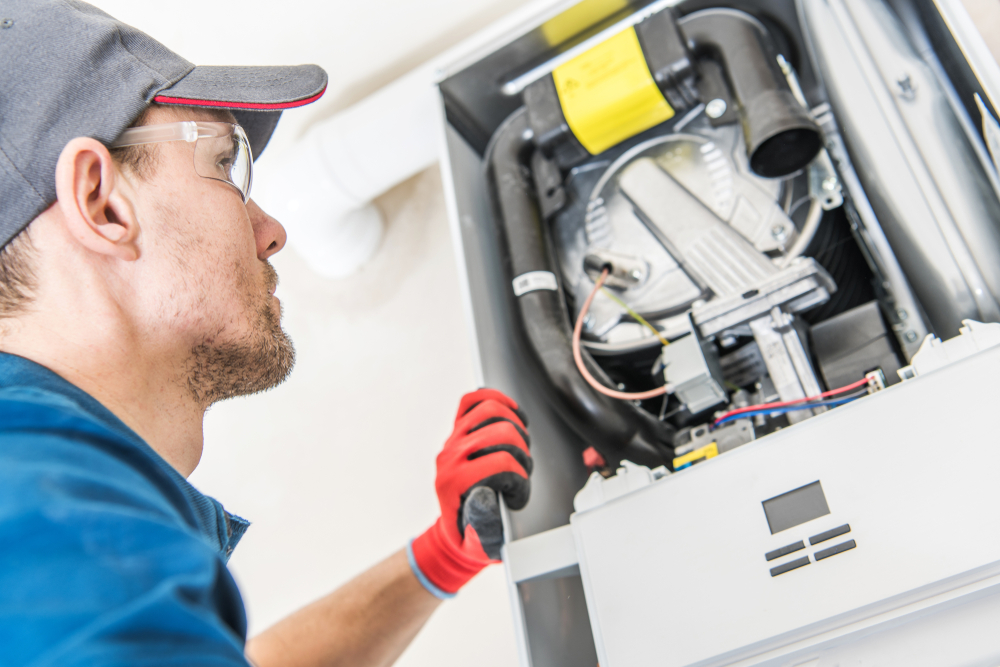Why Energy-Efficient Electric Baseboard Heaters Aren’t an Ideal Option
Some homeowners might notice that a room is feeling too cold. Maybe they are watching television and the living room simply feels a bit too cool. Bumping up the thermostat, though, might lead to a higher energy bill.
What about using an energy-efficient electric baseboard heater, though? Maybe homeowners think that the portable option can add warmth without raising their bill. Before plugging in energy-efficient electric baseboard heaters to take out the chill, here’s what to know about these small heaters.

Space Heaters Don’t Qualify for ENERGY STAR
One of the best resources to research energy efficient appliances and gadgets is ENERGY STAR. The label only is placed on appliances that qualify and that meet the standards for ENERGY STAR.
Unfortunately, space heaters don’t qualify for the label, and ENERGY STAR explains that there is no expectation that the Department of Energy plans to qualify them. For homeowners, this means that finding reputable energy-efficient electric baseboard heaters might be difficult.
Since space heaters don’t qualify for ENERGY STAR uncovering their energy usage or energy waste might be up to the homeowner. Bob Vila, Family Handyman and The Spruce all include recommendations for the best baseboard heaters.
Bob Vila’s site ranked the King K Series baseboard heater as the top choice. The Spruce chose the Cadet 240-volt electric baseboard heater for ‘best overall.’ Family Handyman selected a top choice for different categories; for example, the site included the best hydronic and convection heaters for both large and small rooms.
A hydronic electric heater uses heated liquid to produce its warmth, while convection heaters use metal fins that are warmed by electricity to transform cold air into hot air.
What’s the Best Energy-Efficient Electric Heater?
Searching for the best energy-efficient electric baseboard heater only brings up the lists from the above outlets and others. Again, deciphering the energy-efficiency of these models could be a bit of homework for homeowners.
The better question might be related to the long-term solution of using a baseboard heater. While it might be convenient to plug in a baseboard heater, that small heater only solves the problem temporarily.
Homeowners might need to figure out why a certain room feels colder. Are there issues with the windows? Is the insulation adequate?
Rooms also could feel colder when a wood-burning fireplace is in use. The room for the fireplace might feel hot, but that fireplace is incredibly energy inefficient. The fireplace could be causing the HVAC to work harder, and maybe rooms even feel chillier.
Baseboard heaters or other portable heaters also aren’t a long-term choice, because they aren’t the safest option. These small heaters can pose a fire hazard. Homeowners need to make sure that they are kept away from upholstered furniture, curtains, etc.
Seattle’s Fireline Blog explains that heaters also shouldn’t be plugged into a power strip, they need to have an annual inspection, filters should be replaced or cleaned and homeowners should turn them off every time they leave the room. The Fireline Blog also notes that cords shouldn’t be placed on a heater and heaters should have been tested by a lab; they also should automatically shut off if they fall or tip.
Small portable heaters are designed to produce heat, and this could result in an injury. Some heaters could be a burn hazard for curious children or pets. Homeowners need to use caution and ensure that children and pets stay safe around these heaters.

Other Ways to Heat the Home Efficiently
Baseboard heaters could be a temporary solution to a cold room, but they aren’t the most efficient choice. Finding out the underlying cause of a cold room, though, could help homeowners decrease energy waste and warm up, too.
A major culprit could be the HVAC. Homeowners can feel the vents for warm air that is flowing freely into a space. If the air is cold or isn’t flowing well, homeowners will need to have the HVAC inspected. They also might want to check the programmed temperature on their thermostat. Sometimes a family member could nudge down the temperature and forget to adjust it again.
For example, if the oven heats up the home, homeowners might lower the thermostat or turn it off completely to help cool down the space.
Homeowners who are considering a baseboard heater to warm up a room might try to find the most energy-efficient options. Unfortunately, these heaters don’t qualify for the ENERGY STAR label, and researching the most energy-efficient options could be a bit of homework.
Homeowners concerned about the temperature of their space might focus on the cause of the cold instead of using a portable heater. Fixing the problem could help lower energy waste and maybe even decrease utility bills, too.


